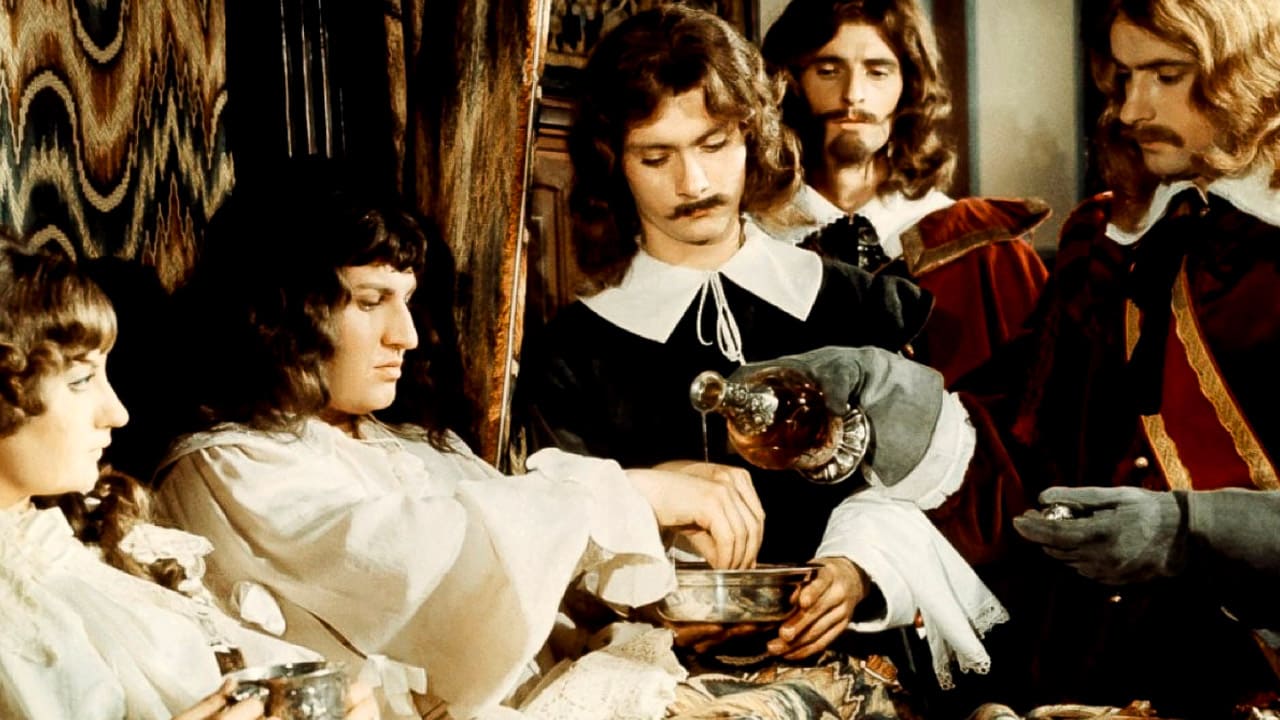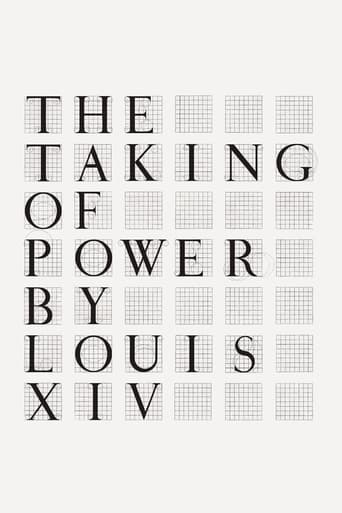Glucedee
It's hard to see any effort in the film. There's no comedy to speak of, no real drama and, worst of all.
Gurlyndrobb
While it doesn't offer any answers, it both thrills and makes you think.
Teddie Blake
The movie turns out to be a little better than the average. Starting from a romantic formula often seen in the cinema, it ends in the most predictable (and somewhat bland) way.
Fleur
Actress is magnificent and exudes a hypnotic screen presence in this affecting drama.
MisterWhiplash
It doesn't seem to be the same filmmaker; at first, if one were to say that this, The Taking of Power by Louis the XIV, were directed by the same man who lensed the "post-war" trilogy of Open City, Paisan and Germany Year Zero, without looking at the credits in the opening minutes, I would say you were mad. It looks stiff, at first, without the same bursts of passion and rugged documentary style that highlighted those films, or the passions of the films he made with his wife, Ingrid Bergman.But sticking with the film, the look and what is revealed with every little glance, every head turn, every cut away or motion to move, reveals a filmmaker who is in fact creating a film with immense conflict, taking an eye on a historical figure who was filled with fear, so much so that it drove him to be a cold force of domination in France. Louis (non-professional actor Jean-Marie Patte) doesn't really trust anyone, not even his mother, the Queen, and it's curious that Rossellini doesn't even feature him until nearly fifteen minutes into the 95 minute running time (at first the film looks to be about a Cardinal, played by the very convincing Silvagni, on his death bed). But, again, sticking with it, we see a tale of a King who could take a hold of power not by getting into hysterics or enraged, but by a stare and way of looking and speaking, out of beady eyes and a toneless baritone.This is in some part an odd credit to Patte, who in move not unlike Robert Bresson was chosen as a first-time actor and apparently never went again in front of the lens. Indeed he looks nervous in front of the camera, and unlike Bresson Rossellini, who according to the DVD notes had only a budget of the equivalent today of 20 grand (that's right folks, 20 grand) and about three weeks to shoot it in, didn't have the time or patience to break down his actor with so many takes. In a way this is a very clever move by Rossellini, but it works to even further an objective that might have been lost or not really met by a "better" actor. I'm almost reminded of a stiffer, less bad-jokey George W. Bush in this Louis XIV, a character who everybody in his council and company pays heed to, even if they don't take him much seriously - at first, anyway.The film also is shot gorgeously, but not always in a manner to get your attention. While Rossellini navigates the story, of Louis facing down a traitor in his ranks, Fouquet (Pierre Barrat) and takes hold as a King who takes his advice from a very small knit group, he stages scenes without a trace of melodrama. In his own way Rossellini is still practicing his own form of neo-realism, only instead of on the streets its in the royal palaces and banquet halls, the fields where the dogs are let loose on hunting day, the meals prepared with a documentary-style precision. Except for one crane shot (ironically directed by Rossellini's son, Renzo, on a day he wasn't there to shoot), it's shot with the simplicity of a filmmaker who trusts his craft so innately that he doesn't need to second guess himself, whether it's in a very tense scene where all the drama is boiling under the surface (or erupting, as happens once or twice between Louis and his mother Queen) or those shots panning across the royal courtyard towards the end.It should be noted, that this is for those with a taste for historical-period dramas, and admirers of the filmmaker. If you're made to watch this in a class without much interest beforehand, it might not be easygoing. Yet for the acquired taste it is compelling cinema, shot for TV but made with a taste for storytelling meant to be seen on a screen that can be seen every look of horror on Patte's face or moment where the colors and costumes and sets seem to threaten to overwhelm the "protagonist". It's not Coppola's Marie-Antoinette, that's for sure.
Ms-Bunnyears
Louis XIV was not judged by his contemporaries to be much of anything while Mazarin was alive. This film shows how with brains and style, he consolidated power by subtly weakening the nobility of France with "circuses and bread." Aristocrats obsessed with the King's latest style of coat while competing for his favor were not going to wage petty wars or rebel again. To keep them placated and diverted, Louis built Versailles - L'Île Enchantée, the 17th century version of Disneyworld. In that island of wonder and diversion, he turned his fractious nobles into groupies, hanging on is every word and gesture. He gave them plays, operas, masques, fine cuisine, wine, fabulous gardens to play in, and a style of living that required more money than their estates could earn. Versailles was their golden cage, and even with the door open, none wanted to fly out. A little more than a century later, his great-grandson would die on the guillotine, an end whose beginnings were sown in the isolation and excesses of the court he created to consolidate his power.
zetes
Lethargic minimalist film about Louis XIV's rise to power in the mid 17th Century. I suppose if I had a greater interest in the time period or historical characters, I wouldn't have been bored. Case in point, several months ago I saw another of Rossellini's biopics from the same period, Socrates (1970), and, as I am a classics scholar, I liked it very much. I know a lot about Socrates, but almost nothing about Louis XIV. Both are similar in style (although Louis has much less dialogue). I guess Rossellini's point was to subtract the usual pomp and circumstance that surrounds the European royalty of this historical period, depicting everything in a very realistic light. I think I can make at least two legitimate criticisms against this film: 1) I think it takes too long with the first act, the Cardinal's death. It takes more than a half an hour of a 100 minute film (actually, the Hen's Tooth video falls about 9 minutes short of that mark). We learn nothing much about what is actually going on during this half hour. 2) Jean-Marie Patte, who plays Louis XIV, seemed particularly passionless to me. I did like some parts, or at least I found them interesting. At one point, Louis designs his now-famous costume. He tells his subordinates that all nobles will be dressed in exactly the same way. In the following scene, they are. I also liked the meal scene, where we, as well as everyone else in his court, watch as patiently as possible as Louis eats course after course. The nobles in the court feign interest. What weird customs we humans have developed. I wouldn't suggest The Rise of Louis XIV unless you are interested in the period, or are a huge fan of Rossellini. 6/10.
Chris C
This movie's a good history lesson and nothing else. Very authentic, but somewhat dragging. The actor playing King Louis XIV can't act, which makes it a little irritating as he's the main character. He's just not up to the part. In the movie the king makes all the wise decisions that affected France for years to come in the space of a minute, but as everyone knows Rome wasn't built in a year.

